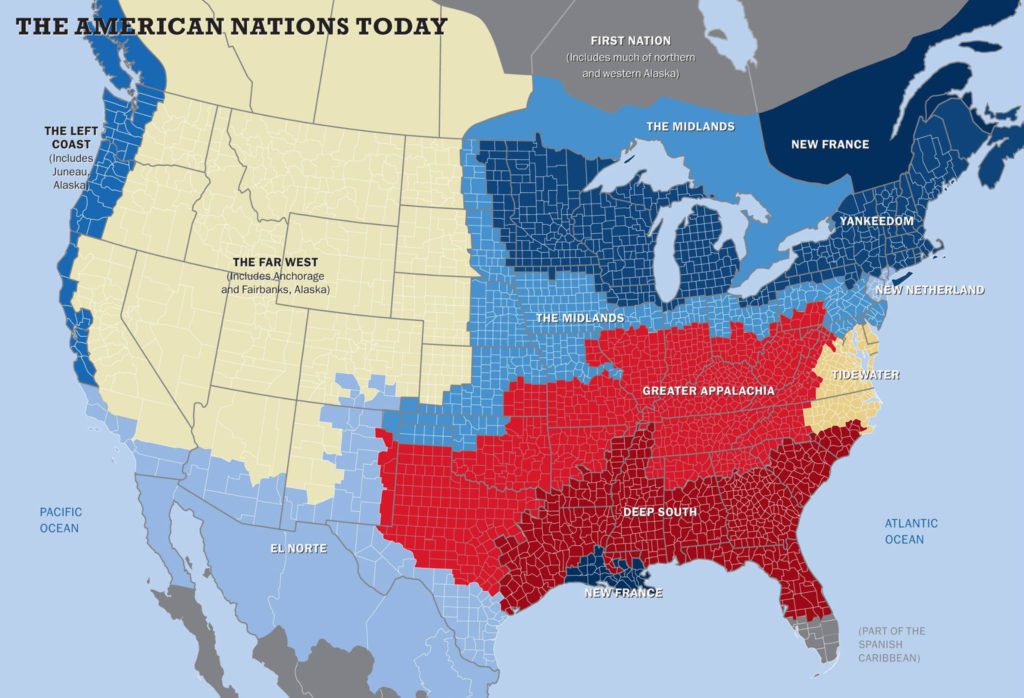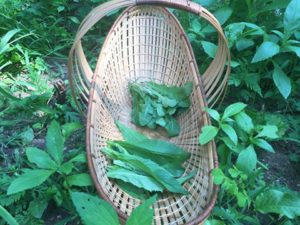Episode 1: The Side of the Road

It’s the first episode of our new, weekly show about New England. We dig into data showing racial disparities in traffic stops with WNPR reporter Jeff Cohen, talk to historian Colin Woodard about what means to be a Yankee, and get rid of invasive plants and animals… by eating them, with chef Bun Lai of Miya’s in New Haven.
Police Traffic Stops and Racial Disparity
Getting stopped by police is a good way to ruin any driver’s day. But if you’re African American, data show these stops happen more often, result in more searches, and can break down trust between police and communities. Below is police dashcam video from West Hartford, Connecticut — where, like several other towns in Connecticut, you’re much more likely to be pulled over if you’re black or Hispanic than if you’re white.
The officer in the video above asks the driver, Paul O. Robertson, what brings him to West Hartford.
“Having that line of questioning, honestly, I was just floored,” Robertson said. “Because in my mind, I’m trying to be respectful at the same time, and not create a conflicting situation in that moment. … It is the language, the demeanor, in terms of how it’s communicated. And then, just the line of questioning made me feel like I didn’t belong.”
Questioning Yankeedom
Imagine a map of the United States that’s not divided into 50 states — a map where eleven distinct “nations” sprawl for hundreds, maybe thousands of miles, connected not by our current governmental boundaries, but by a common culture.

Credit: Colin Woodard; Tufts Magazine
Imagine a New England influence stretching across New York state, the top tier of Ohio, and into the Great Lakes. That’s an America envisioned by historian Colin Woodard in his book, American Nations.
Cooking and Eating Invasive Species
Summertime in New England means seafood — and lots of it: lobsters, clams, scallops, and for as long as it lasts, cod. Some fish, like cod, are considered “vulnerable” in New England waters. Others, like herring, are in short supply.
You might not think about herring as a fish you would eat, but it’s used as bait for those tasty lobsters, and that has lobstermen worried. Depleted stocks, warming waters, pollution, nitrogen runoff — these are all concerns that have us changing the way we think about what we eat from our waters.

Wild greens from Bun Lai’s yard. Photo by John Dankosky
That’s why a group of chefs, scientists, and fishermen gathered in Rhode Island recently to cook with what’s called “trash” fish, or “bycatch” — the unwanted residue of a commercial fishing operation.
Food like that is on the menu at Miya’s, a restaurant in New Haven, Connecticut. It’s known as the birthplace of sustainable sushi. What does that mean? Well, you can’t find the things you’re used to seeing on the menu of the sushi place down the street. Food like farmed shrimp or salmon, or bluefin tuna, or eel, are all replaced by “unwanted” fish like carp, and lots of plants.
And some of them come from Bun Lai’s front yard. We spent about 20 minutes stooped over on a sweltering day filling a basket with wild mustards, mugwort, and dandelion weeds. Bun Lai called it “lunch.”
About NEXT
NEXT is produced at WNPR.
Host: John Dankosky
Producer: Andrea Muraskin
Executive Producer: Catie Talarski
Digital Content Manager/Editor: Heather Brandon
Contributors to this episode: Lydia Brown, Galen Koch, Jonathan McNicol, Kristin Gourlay
Music: Todd Merrell, and Goodnight Blue Moon‘s “New England”
We appreciate your feedback! Send praise, critique, suggestions, questions, story leads, and pictures of your corner of New England to next@wnpr.org.
